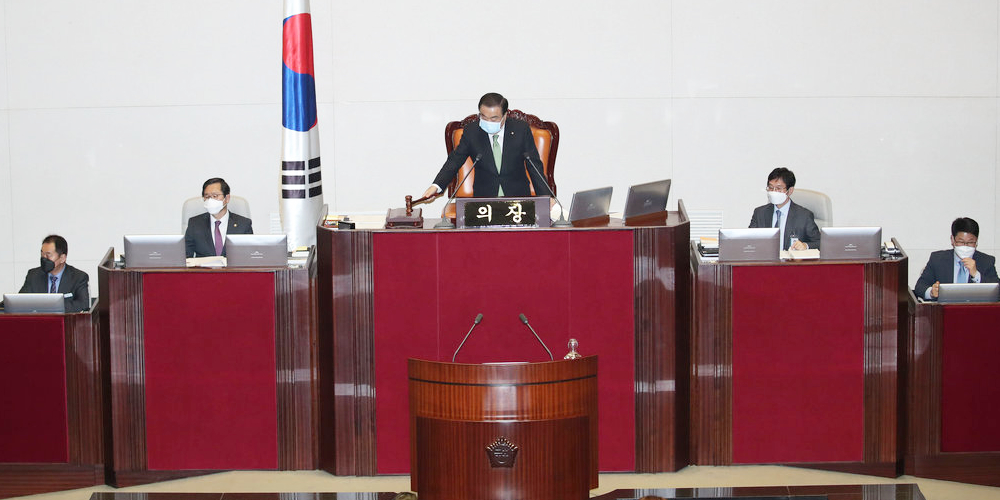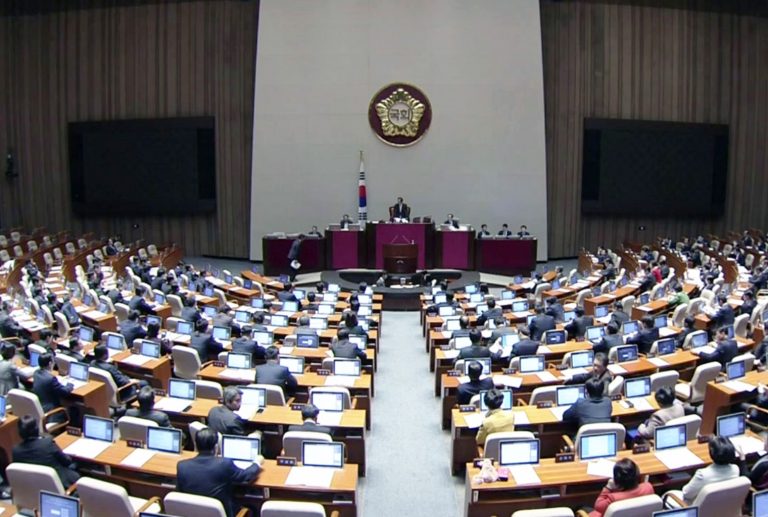South Korea’s National Assembly finally passed a bill that provides a framework for the regulation of cryptocurrencies and exchanges. Crypto service providers will be required to use the real-name verification system and comply with reporting requirements in line with the global cryptocurrency standards set by the Financial Action Task Force (FATF).
Also read: Bitcoin Legal in India – Exchanges Resume INR Banking Service After Supreme Court Verdict Allows Cryptocurrency
South Korea Will Now Regulate Cryptocurrency
The South Korean National Assembly unanimously passed the amendment to the Act on Reporting and Use of Specific Financial Information on Thursday, after years of deliberation. The new legislation provides a regulatory framework for cryptocurrencies and related service providers. Previously, the government had only issued guidelines but there was no actual law passed. “Cryptocurrency now fully legal in South Korea,” the News Asia publication commented, elaborating:
The passing of the amendment signifies the official entry of cryptocurrency trading and holding into the legal system for the South Korean government.
The legislation, now awaiting President Moon Jae-in to sign into law, will enter into force one year from the date of signing. There will be a six-month grace period, the publication conveyed. “This means that all entities affected by the law will need to be in full compliance by September 2021.”

The amendment passed the National Assembly’s national policy committee in November last year. It imposes anti-money laundering (AML) obligations on cryptocurrency exchanges and service providers, in compliance with the standards set by the Financial Action Task Force (FATF), the global money-laundering watchdog. The FATF issued guidance on crypto assets and related service providers in June last year. All the G20 countries, including South Korea, have declared their commitments to following these standards. During their first meeting this year, the G20 finance ministers and central bank governors also urged countries to implement these guidelines.
The Real Name System
South Korea introduced the real-name verification system back in January 2018. Although not a requirement, crypto exchanges were encouraged to partner with approved banks to use the system. However, so far, only the largest exchanges — Bithumb, Upbit, Coinone, and Korbit — have been able to use this system, as banks have been reluctant to provide this service to small and medium-sized exchanges.

“Real-name accounts prevent money laundering by assigning a verified individual to a single bank account with which they may withdraw and deposit fiat currency from and to an exchange,” News Asia explained. “Up until now, anyone could launch a cryptocurrency exchange in South Korea. By September 2019, there were over 70 exchanges in the country.” The publication elaborated that under the new law:
Exchanges, trusts, wallet companies, and ICO are now required by law to have a real-name verification partnership with an approved Korean bank.
In addition, regulated entities must obtain an information security management system (ISMS) certification from the Korea Internet Security Agency (KISA).
Meanwhile, the country’s Ministry of Economy and Finance, which oversees the country’s economic policy, is pushing to amend the tax code to allow the taxation of cryptocurrency, as individuals’ crypto profits are not taxable under the current tax law in South Korea.
What do you think of South Korea passing a bill to fully regulate the crypto industry in line with the FATF standards? Let us know in the comments section below.
Disclaimer: This article is for informational purposes only. It is not an offer or solicitation of an offer to buy or sell, or a recommendation, endorsement, or sponsorship of any products, services, or companies. Bitcoin.com does not provide investment, tax, legal, or accounting advice. Neither the company nor the author is responsible, directly or indirectly, for any damage or loss caused or alleged to be caused by or in connection with the use of or reliance on any content, goods or services mentioned in this article.
Images courtesy of Shutterstock and Yonhap News.
Did you know you can buy and sell BCH privately using our noncustodial, peer-to-peer Local Bitcoin Cash trading platform? The local.Bitcoin.com marketplace has thousands of participants from all around the world trading BCH right now. And if you need a bitcoin wallet to securely store your coins, you can download one from us here.
The post South Korea Passes Bill to Regulate Cryptocurrency in Line With FATF Standards appeared first on Bitcoin News.










